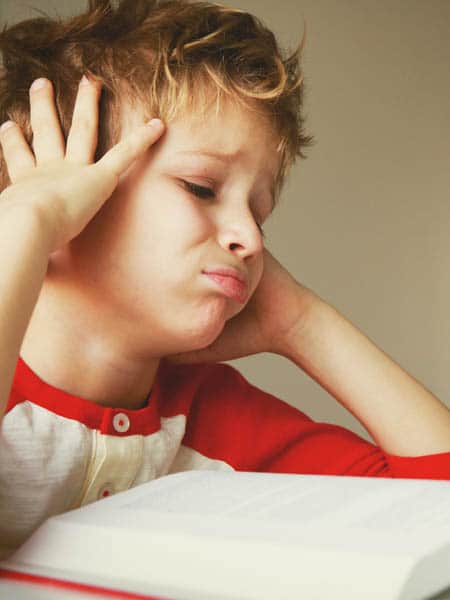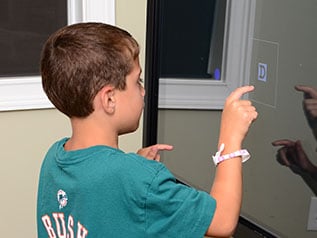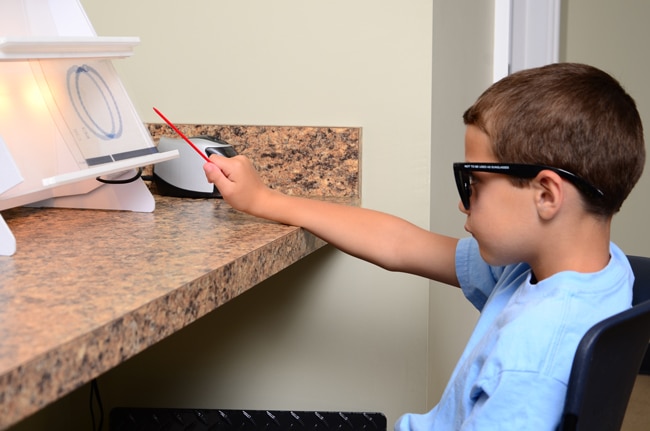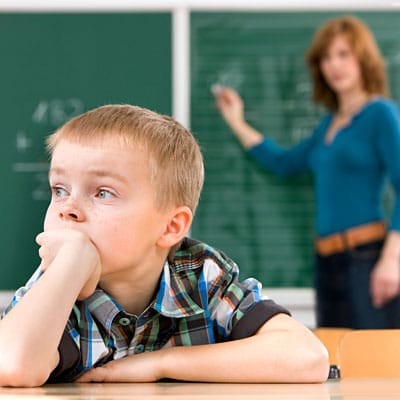10% to 15% of School-Age Children Struggle with ADHD
More and more children are being diagnosed with a condition known as Attention Deficit Hyperactivity Disorder or ADHD. Current estimates state that 10 percent to 15 percent of school-age children are struggling with this disorder.
It is generally assumed that children diagnosed with ADHD exhibit a common set of symptoms that all share a common physiological and/or psychological origin. There is, however, much disagreement as to what exactly this symptomology looks like. Some of the most observed symptoms in children diagnosed with ADHD include:
- schoolwork shows frequent and repeating careless mistakes
- child does not listen to and focus on what is being said
- organizing tasks and activities is difficult for the child
- belongings are frequently lost or misplaced
- child will often fidget and squirm when seated
- child talks excessively
- child frequently interrupts or intrudes on others
It’s Possible that Your Child May be Experiencing a Visual Problem
If you notice that your child enjoys being read to, even sitting and listening for long periods, but he or she demonstrates difficulty when using his or her own eyes for reading, completing homework, or doing deskwork, the child may be experiencing an attention problem related to an inability to use his or her eyes effectively. It is possible that your child may be experiencing a visual problem that is masquerading as an attention problem.
Whatever the causative factor behind your child’s struggle with attention or behavioral-related difficulties, an untreated visual problem will only add to the frustration he or she is feeling. This can trigger behavioral problems and possibly even make things worse. Undiagnosed vision disorders may be misdiagnosed as learning disabilities and/or ADHD. Before your child is classified as “learning disabled” or “ADHD,” consider a full vision screening and evaluation.

Vision Therapy May Help
suspected of ADHD, it is recommended that he or she be evaluated by an optometrist trained in developmental vision therapy.
Our vision is more than just the degree of clarity with which we see things. Human vision is a complex combination of skills we learn at an early age, including how to track objects, fixing our vision on one object, focus changing, fusing our binocular images into a cohesive whole, and visualization. If all of these are adequately developed, children and adults alike generally have no problem maintaining attention, reading, and writing efficiently without careless errors, and understanding what we hear and see. We find that we don’t have to rely on movement to stay alert, unlike the child who squirms constantly in his or her seat.
Recommended Evaluations
If you are faced with making a choice about treatment for ADHD for yourself or your child, most professional health care providers and educators will recommend the following evaluations be done:
- Full vision evaluation by an eye doctor and a consultation with a developmental optometrist
- Have a full evaluation done by an occupational therapist who has expertise in recognizing and treating problems in sensory processing
- Consult with an allergist to rule out possible reactions to food or other allergens
How can vision therapy help?
Vision therapy is an individualized program that is designed to meet the specific needs of you or your child. The ultimate goal of vision therapy is to train the brain to effectively use the information it receives from the eyes. This includes the eyes, the brain, and the body. With therapy, the child is helped to comprehend the information from the eyes quickly, and to react appropriately. While vision therapy is often considered a form of neurological training or rehabilitation, it can more precisely be compared to forms of occupational therapy or physical therapy.
Vision Therapy Treatment Plans
Vision therapy treatment regimens generally include procedures designed to improve the brain’s ability to maintain proper eye alignment and properly control eye movements. It is designed to increase focusing abilities and help the eyes function as a team, also known as binocular vision. Specialized computer programs and optical devices, such as therapeutic lenses, special filters, and prisms may be used to improve visual-motor coordination skills and the eyes’ endurance.
Vision therapy is not a “quick fix” that will correct visual problems overnight. It usually requires multiple sessions, often several times a week for a number of weeks. In the final states of the therapy regimen, the child’s newly acquired visual skills are reinforced through repetition. This moves these skills into an “automatic mode” within the child’s visual system. The integration of motor and cognitive skills work together to make the child’s visual system as effective as it can possibly be.


CONTACT US
Vision Care & Therapy Center

Dr. Janna Iyer, FCOVD
Dr. Alayna Larsen
11735 Pointe Place
Roswell, Ga 30076
678-256-3990
Office Hours
Mon-Thu 9:00am-6:00pm
Fri 9:00am-1:00pm
Appointments
678-256-3990
Patient Infomation


